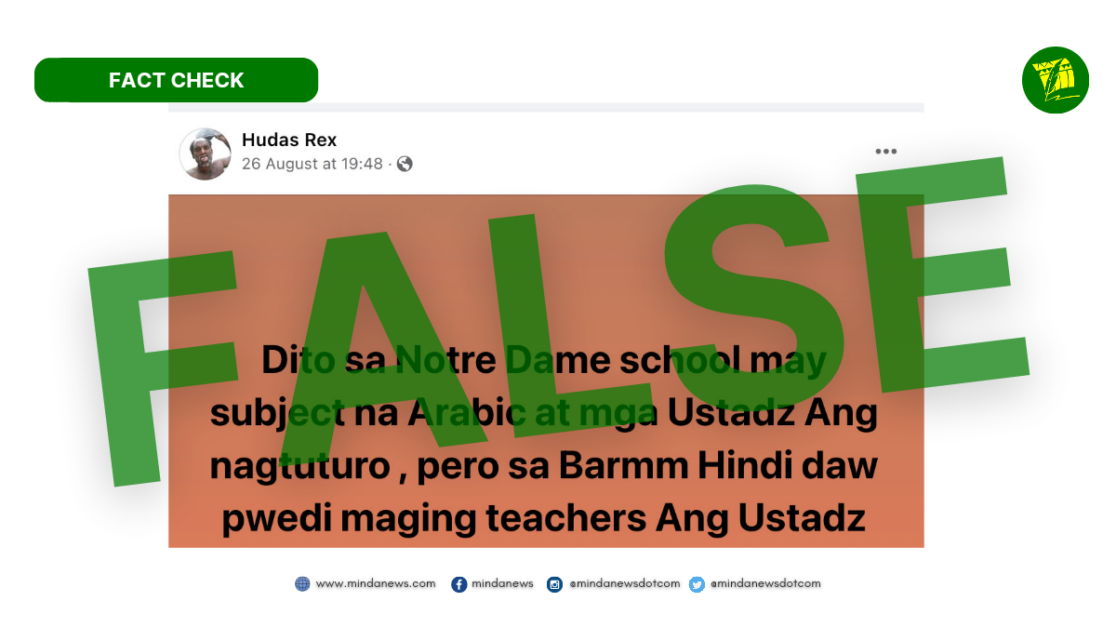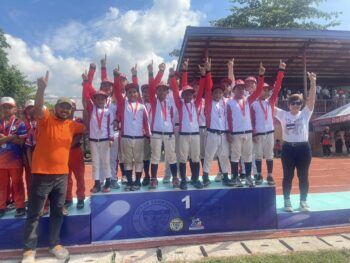
A Facebook post that an ustadz (plural asatidz) could not teach in the Bangsamoro Autonomous Region in Muslim Mindanao (BARMM) is a false claim.
Facebook user Hudas Rex posted the false information at the page of BARMM News Update, which counts at least 10,500 members.
https://www.facebook.com/groups/787019775000339/posts/1679204909115150/
Bangsamoro Education Minister Mohagher Iqbal belied that the Ministry of Basic, Higher and Technical Education (MBHTE) has no place for asatidz.
In fact, the agency has created the Office of Directorate General for Madaris Education (DGME), which has been actively recruiting asatidz for the madaris (plural for madrasah) or Islamic schools.
In an August 19 memorandum, Iqbal announced the conduct of in-service training (INSET) for newly hired Islamic Studies and Arabic Language (ISAL) asatidz in 11 school divisions in the BARMM.
https://www.facebook.com/photo/?fbid=417064637193247&set=pcb.417066410526403
https://www.facebook.com/photo/?fbid=417064637193247&set=pcb.417066410526403
On August 23, the DGME commenced the simultaneous conduct of a 5-day INSET, which seeks to enhance, strengthen and capacitate them as teacher-asatidz.
In an opinion piece published by MindaNews on July 26, 2017, author Yusof Morales discussed the different types of Muslim religious leaders in the Philippines to avoid confusion on their typology.
Ustadz refers originally to a university professor (in the Middle East) but eventually refers to any religious scholar who has studied Islam and teaches in the madrasah in the Philippines, he wrote.
As with all our other reports, MindaNews welcomes leads or suggestions from the public to potential fact-check stories. (Bong S. Sarmiento / MindaNews)
(This fact-check piece was produced with the support of Internews’ Philippine Fact-Checker Incubator Project.)







